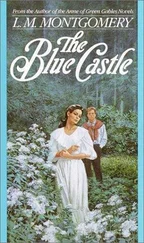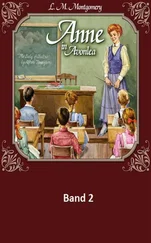Lucy Montgomery - Rilla of Ingleside
Здесь есть возможность читать онлайн «Lucy Montgomery - Rilla of Ingleside» весь текст электронной книги совершенно бесплатно (целиком полную версию без сокращений). В некоторых случаях можно слушать аудио, скачать через торрент в формате fb2 и присутствует краткое содержание. Жанр: Детская проза, на английском языке. Описание произведения, (предисловие) а так же отзывы посетителей доступны на портале библиотеки ЛибКат.
- Название:Rilla of Ingleside
- Автор:
- Жанр:
- Год:неизвестен
- ISBN:нет данных
- Рейтинг книги:4 / 5. Голосов: 1
-
Избранное:Добавить в избранное
- Отзывы:
-
Ваша оценка:
- 80
- 1
- 2
- 3
- 4
- 5
Rilla of Ingleside: краткое содержание, описание и аннотация
Предлагаем к чтению аннотацию, описание, краткое содержание или предисловие (зависит от того, что написал сам автор книги «Rilla of Ingleside»). Если вы не нашли необходимую информацию о книге — напишите в комментариях, мы постараемся отыскать её.
Rilla of Ingleside — читать онлайн бесплатно полную книгу (весь текст) целиком
Ниже представлен текст книги, разбитый по страницам. Система сохранения места последней прочитанной страницы, позволяет с удобством читать онлайн бесплатно книгу «Rilla of Ingleside», без необходимости каждый раз заново искать на чём Вы остановились. Поставьте закладку, и сможете в любой момент перейти на страницу, на которой закончили чтение.
Интервал:
Закладка:
Rilla had a "white night" and did not fall asleep until late. When she wakened Gertrude Oliver was sitting at her window leaning out to meet the silver mystery of the dawn. Her clever, striking profile, with the masses of black hair behind it, came out clearly against the pallid gold of the eastern sky. Rilla remembered Jem's admiration of the curve of Miss Oliver's brow and chin, and she shuddered. Everything that reminded her of Jem was beginning to give intolerable pain. Walter's death had inflicted on her heart a terrible wound. But it had been a clean wound and had healed slowly, as such wounds do, though the scar must remain for ever. But the torture of Jem's disappearance was another thing: there was a poison in it that kept it from healing. The alternations of hope and despair, the endless watching each day for the letter that never came—that might never come—the newspaper tales of ill-usage of prisoners—the bitter wonder as to Jem's wound—all were increasingly hard to bear.
Gertrude Oliver turned her head. There was an odd brilliancy in her eyes.
"Rilla, I've had another dream."
"Oh, no—no," cried Rilla, shrinking. Miss Oliver's dreams had always foretold coming disaster.
"Rilla, it was a good dream. Listen—I dreamed just as I did four years ago, that I stood on the veranda steps and looked down the Glen. And it was still covered by waves that lapped about my feet. But as I looked the waves began to ebb—and they ebbed as swiftly as, four years ago, they rolled in—ebbed out and out, to the gulf; and the Glen lay before me, beautiful and green, with a rainbow spanning Rainbow Valley—a rainbow of such splendid colour that it dazzled me—and I woke. Rilla—Rilla Blythe—the tide has turned."
"I wish I could believe it," sighed Rilla.
"Sooth was my prophecy of fear
Believe it when it augurs cheer,"
quoted Gertrude, almost gaily. "I tell you I have no doubt."
Yet, in spite of the great Italian victory at the Piave that came a few days later, she had doubt many a time in the hard month that followed; and when in mid-July the Germans crossed the Marne again despair came sickeningly. It was idle, they all felt, to hope that the miracle of the Marne would be repeated. But it was: again, as in 1914, the tide turned at the Marne. The French and the American troops struck their sudden smashing blow on the exposed flank of the enemy and, with the almost inconceivable rapidity of a dream, the whole aspect of the war changed.
"The Allies have won two tremendous victories," said the doctor on 20th July.
"It is the beginning of the end—I feel it—I feel it," said Mrs. Blythe.
"Thank God," said Susan, folding her trembling old hands, Then she added, under her breath, "but it won't bring our boys back."
Nevertheless she went out and ran up the flag, for the first time since the fall of Jerusalem. As it caught the breeze and swelled gallantly out above her, Susan lifted her hand and saluted it, as she had seen Shirley do. "We've all given something to keep you flying," she said. "Four hundred thousand of our boys gone overseas—fifty thousand of them killed. But—you are worth it!" The wind whipped her grey hair about her face and the gingham apron that shrouded her from head to foot was cut on lines of economy, not of grace; yet, somehow, just then Susan made an imposing figure. She was one of the women—courageous, unquailing, patient, heroic—who had made victory possible. In her, they all saluted the symbol for which their dearest had fought. Something of this was in the doctor's mind as he watched her from the door.
"Susan," he said, when she turned to come in, "from first to last of this business you have been a brick!"
Chapter XXXI
MRS. MATILDA PITTMAN
Rilla and Jims were standing on the rear platform of their car when the train stopped at the little Millward siding. The August evening was so hot and close that the crowded cars were stifling. Nobody ever knew just why trains stopped at Millward siding. Nobody was ever known to get off there or get on. There was only one house nearer to it than four miles, and it was surrounded by acres of blueberry barrens and scrub spruce-trees.
Rilla was on her way into Charlottetown to spend the night with a friend and the next day in Red Cross shopping; she had taken Jims with her, partly because she did not want Susan or her mother to be bothered with his care, partly because of a hungry desire in her heart to have as much of him as she could before she might have to give him up forever. James Anderson had written to her not long before this; he was wounded and in the hospital; he would not be able to go back to the front and as soon as he was able he would be coming home for Jims.
Rilla was heavy-hearted over this, and worried also. She loved Jims dearly and would feel deeply giving him up in any case; but if Jim Anderson were a different sort of a man, with a proper home for the child, it would not be so bad. But to give Jims up to a roving, shiftless, irresponsible father, however kind and good-hearted he might be—and she knew Jim Anderson was kind and good-hearted enough—was a bitter prospect to Rilla. It was not even likely Anderson would stay in the Glen; he had no ties there now; he might even go back to England. She might never see her dear, sunshiny, carefully brought-up little Jims again. With such a father what might his fate be? Rilla meant to beg Jim Anderson to leave him with her, but, from his letter, she had not much hope that he would.
"If he would only stay in the Glen, where I could keep an eye on Jims and have him often with me I wouldn't feel so worried over it," she reflected. "But I feel sure he won't—and Jims will never have any chance. And he is such a bright little chap—he has ambition, wherever he got it—and he isn't lazy. But his father will never have a cent to give him any education or start in life. Jims, my little war-baby, whatever is going to become of you?"
Jims was not in the least concerned over what was to become of him. He was gleefully watching the antics of a striped chipmunk that was frisking over the roof of the little siding. As the train pulled out Jims leaned eagerly forward for a last look at Chippy, pulling his hand from Rilla's. Rilla was so engrossed in wondering what was to become of Jims in the future that she forgot to take notice of what was happening to him in the present. What did happen was that Jims lost his balance, shot headlong down the steps, hurtled across the little siding platform, and landed in a clump of bracken fern on the other side.
Rilla shrieked and lost her head. She sprang down the steps and jumped off the train.
Fortunately, the train was still going at a comparatively slow speed; fortunately also, Rilla retained enough sense to jump the way it was going; nevertheless, she fell and sprawled helplessly down the embankment, landing in a ditch full of a rank growth of golden-rod and fireweed.
Nobody had seen what had happened and the train whisked briskly away round a curve in the barrens. Rilla picked herself up, dizzy but unhurt, scrambled out of the ditch, and flew wildly across the platform, expecting to find Jims dead or broken in pieces. But Jims, except for a few bruises, and a big fright, was quite uninjured. He was so badly scared that he didn't even cry, but Rilla, when she found that he was safe and sound, burst into tears and sobbed wildly.
"Nasty old twain," remarked Jims in disgust. "And nasty old God," he added, with a scowl at the heavens.
A laugh broke into Rilla's sobbing, producing something very like what her father would have called hysterics. But she caught herself up before the hysteria could conquer her.
"Rilla Blythe, I'm ashamed of you. Pull yourself together immediately. Jims, you shouldn't have said anything like that."
Читать дальшеИнтервал:
Закладка:
Похожие книги на «Rilla of Ingleside»
Представляем Вашему вниманию похожие книги на «Rilla of Ingleside» списком для выбора. Мы отобрали схожую по названию и смыслу литературу в надежде предоставить читателям больше вариантов отыскать новые, интересные, ещё непрочитанные произведения.
Обсуждение, отзывы о книге «Rilla of Ingleside» и просто собственные мнения читателей. Оставьте ваши комментарии, напишите, что Вы думаете о произведении, его смысле или главных героях. Укажите что конкретно понравилось, а что нет, и почему Вы так считаете.


